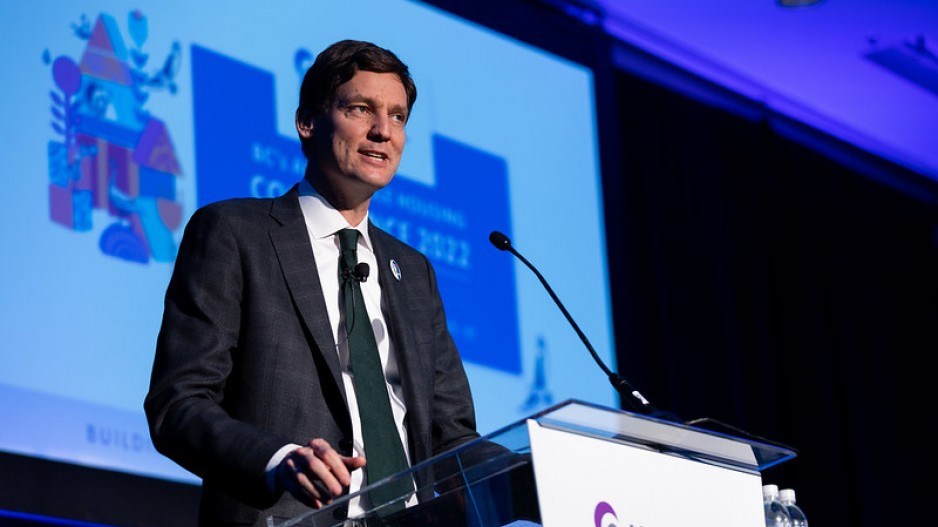Salvatore Vetro said he worked through the Christmas holidays preparing a petition aimed at recalling Premier David Eby as the member for Vancouver-Point Grey.
The actor and former bus driver opposed the NDP government’s vaccine mandate and said the last straw was Bill 36. The NDP majority rammed the Health Professions and Occupations Act through the Legislature in the fall, giving the government more power over a streamlined set of healthcare regulatory colleges.
“Where was the constituency town hall meeting, or is it only held when an election is held, you know, when they want your vote?” Vetro said.
He submitted his application to Elections BC on Dec. 19 and got the go-ahead Jan. 10.
To unseat Eby and force a by-election, Vetro’s campaign must sign up at least 16,449 people between Jan. 17 and March 20.
But there’s a catch: Every one of those petition signatories must also have been registered to vote in Vancouver-Point Grey at the last election in 2020.
There’s another catch: They must also be currently registered to vote in B.C.
“We have a good team in place, we know the threshold, we're going to go above and beyond that,” said Vetro.
It won’t be easy. Eby has won three elections in a row, most recently with 12,602 votes in 2020, a 51.3 per cent share.
Vetro was involved in the Social Credit Party during the 1980s when Bill Vander Zalm was premier. Vander Zalm’s successor, Rita Johnston, set the wheels in motion for recall with a referendum held simultaneously with the 1991 provincial election. Instead of a step forward for democracy, critics called it a gimmick from a defeat-fearing, scandal-plagued party.
The Mike Harcourt-led NDP beat the Socreds and the BC Liberals became the opposition party. But 81 per cent voted ‘Yes’ to the idea of allowing removal of an MLA between elections.
In February 1995, Harcourt’s government made it law. Prince George North NDP MLA Paul Ramsey, the minister of education, skills and training, was the first recall target in 1997. The petition fell 585 signatures shy of forcing Ramsey out of office and triggering a by-election.
Petition organizer Pertti Harkonen cried foul after forensic accountant Ron Parks delivered a report that found Ramsey’s anti-recall campaign overspent by $3,288 and benefited from union-funded phone canvassers.
Since then, citizens have tried 26 more times to recall MLAs. On five other occasions, petitioners have returned signatures to Elections BC. Only once did a petition garner the necessary numbers.
Parksville-Qualicum voters went beyond the 17,020 threshold in 1998 in their bid to get rid of BC Liberal MLA Paul Reitsma.
Reitsma had been ridiculed after the Parksvillle Qualicum Beach News caught him writing letters to the editor in praise of himself, under the pseudonym “Warren Betanko.” The “throw the bum out” sentiment was a great motivator: 24,530 people signed the recall Reitsma petition, but the official count was never completed.
Elections BC officially considers it a failure, though Reitsma opponents were satisfied. He chose to resign rather than face becoming the answer to the trivia question, “Who was the first MLA recalled in B.C. history?”
Vetro’s will be the third time in Vancouver-Point Grey. The attempt to unseat BC Liberal opposition leader Gordon Campbell failed in 1998. As did one five years later in 2003 when Campbell was premier.
Elections BC imposed a $33,902.72 spending cap on Vetro and Eby, should the premier want to mount a counter-campaign. The expenses limit for recall advertising sponsors is $5,839.16.
If Vetro can deliver a petition with enough support, Elections BC would have 42 days in which to verify the signatures.




